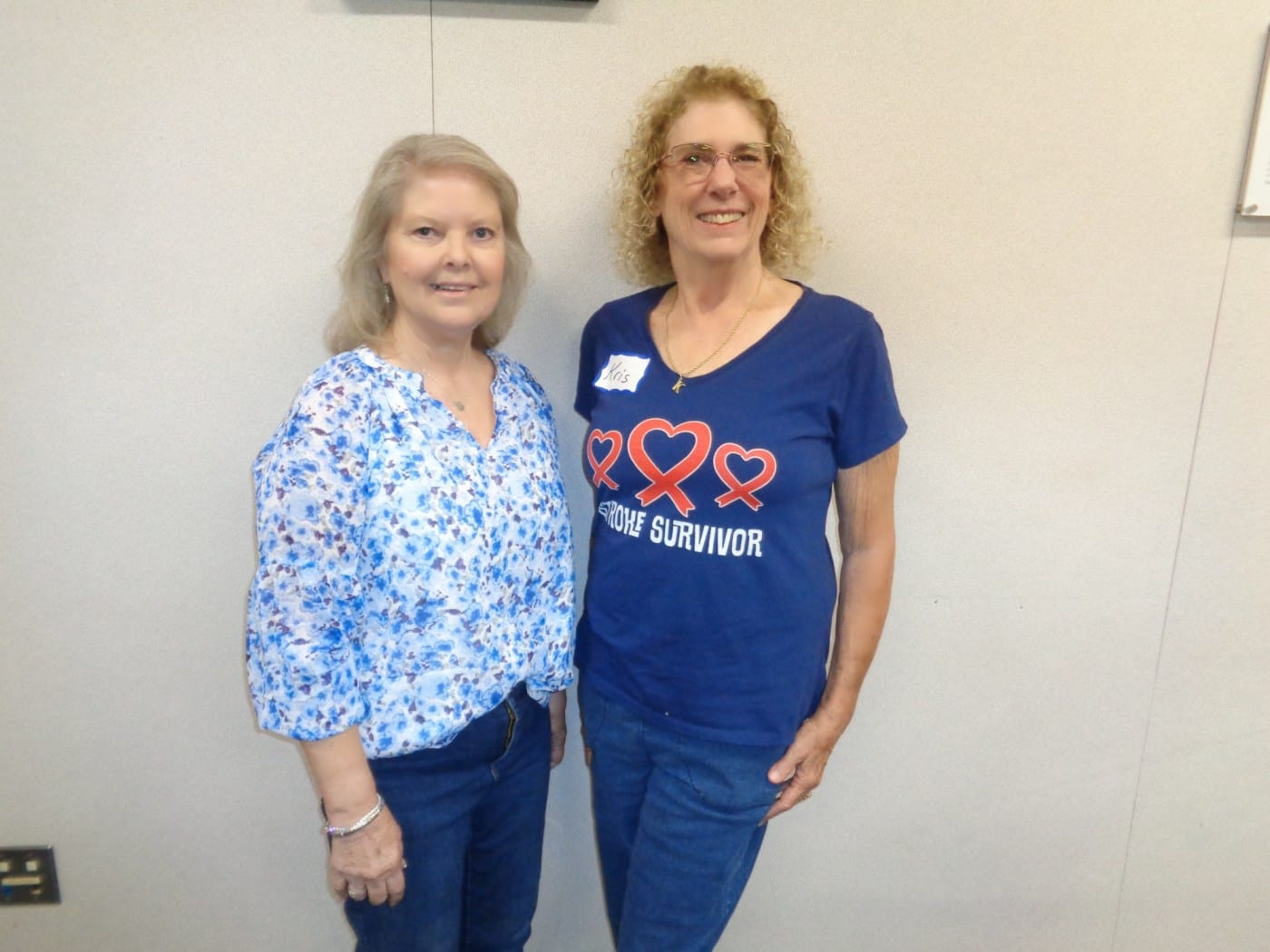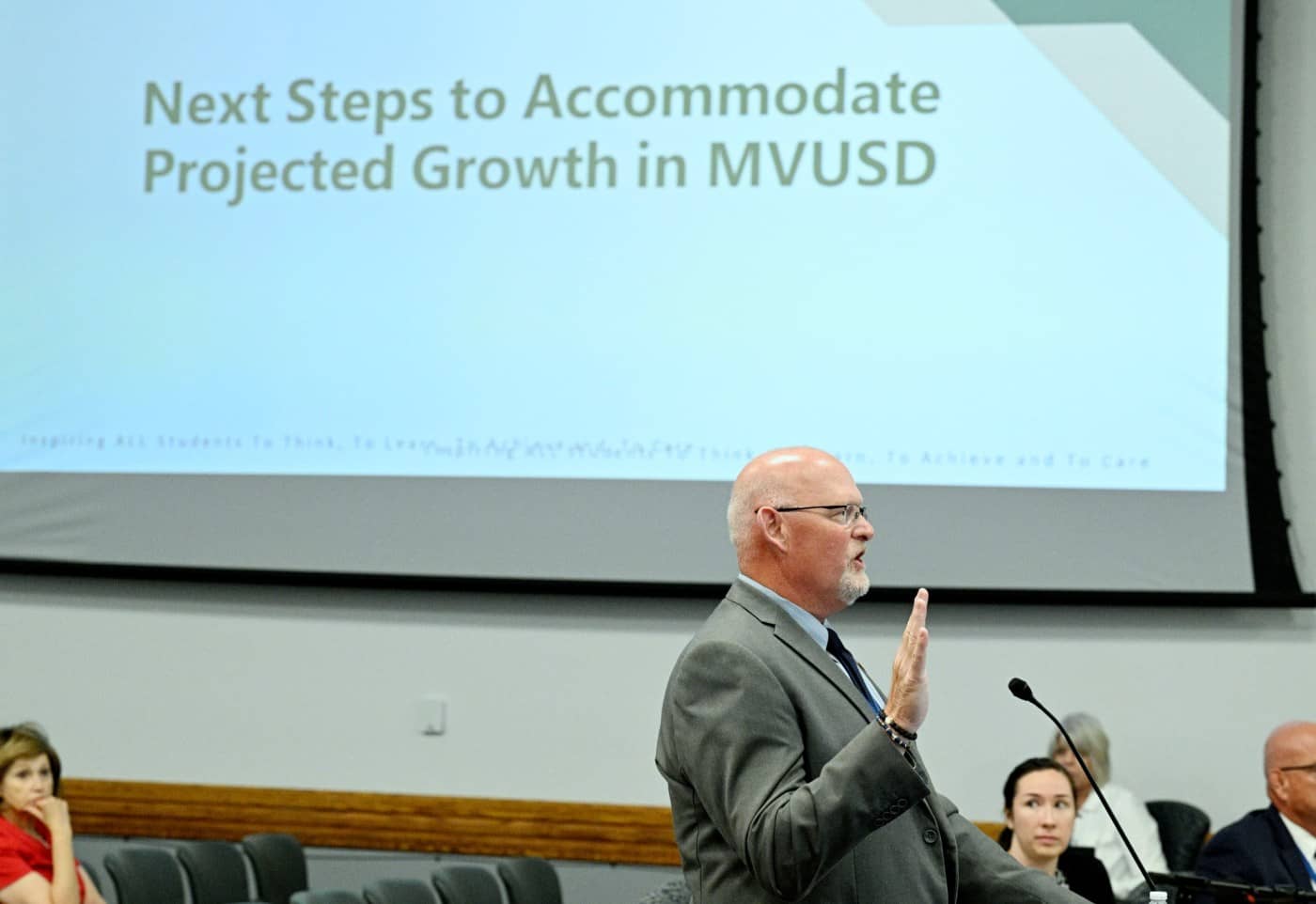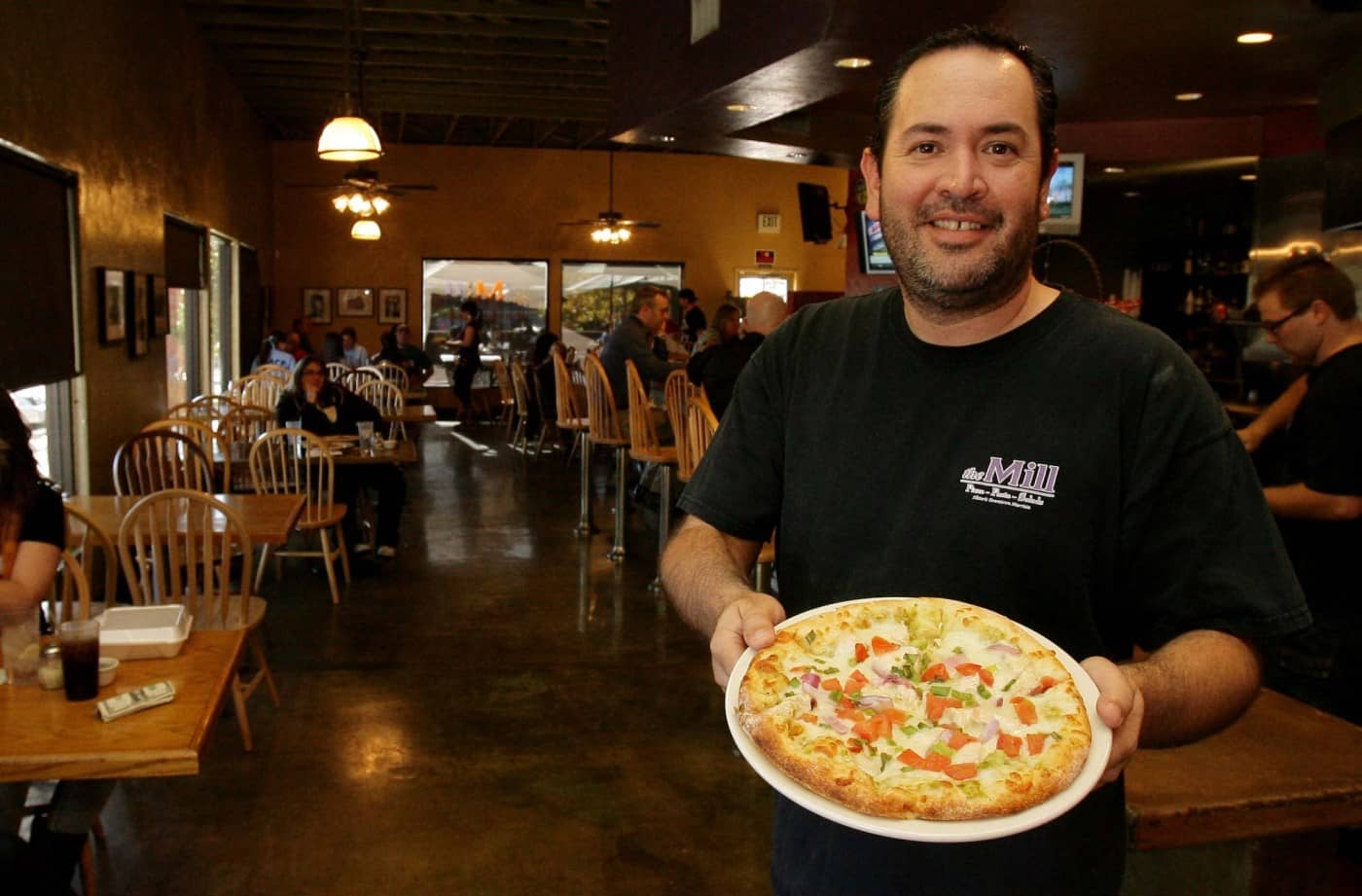Melvin Starnes of Menifee struggles to talk. “I know how it is, but I can’t get my words,” he says.
No hurry, everybody in the room seems to be thinking. “Take your time, we are here for you,” is their compassionate message.
Starnes, 55, had a stroke six years ago and has aphasia, the inability to speak well. Several people at this monthly meeting of the Stroke Survivors and Caregivers Support Group have the same condition.
More than 20 gather for cookies, water, helpful literature and, most importantly, a sense that they’re not alone as they take on the myriad challenges of recovering from a stroke.
Each tells their story, many in tears. When one man breaks down, another stroke survivor comes over to provide tissues. A woman announces she’s pregnant, crying all the while.
How can one not be touched?
Kris Thomasian, who now heads the group, and Laree Martz, who’s the group’s founder, say constantly that it’s OK, it’s OK.
“I’m really happy I did find this group,” Thomasian says. “Meeting other people who have experienced this is just the best.”
They normally meet at 5:30 p.m. the second Wednesday of every month in the professional office building at Loma Linda University Medical Center in Murrieta, but because of recent fires the group shifted to a new location at Vista Murrieta High School. Still, despite the last-minute change, people keep arriving, many late and struggling to find the unfamiliar location, but they’re not about to miss a meeting they love.
Clearly, the gatherings and the rare chance to communicate with people enduring the same struggles mean a lot.
Most are seniors, though a few are much younger. Many gave up careers — in nursing, finance, construction management, teaching and other fields — and all say how much they miss their work and, as hard as some have tried to return, they just can’t do the thing they love to do. The frustration is obvious.
For someone like me who’s 66 and has never had a stroke, I feel lucky. Yet as devastating as a stroke is for both survivors and caregivers, a recurring theme is they just keep going. Their fortitude is inspiring.
Martz, 67, started the group about a decade ago after being told that there were no local support groups. She needed to talk to people like her, so she formed a group herself. A few others had tried, but none made it until she launched hers. It says something about her determination.
Thomasian, in her “Stroke Survivor” shirt she likes to wear in public, served on the Murrieta school board for 21 years and knows how to keep a group active. She constantly suggests gatherings such as a coffee, a meal out, and a movie. Group members have also gone bowling and played miniature golf. They are not about to let their conditions slow them.
Another gathering is also promoted, the Chronic Illness Support Group, that meets at 6 p.m. the first Mondays of the month at Canyon Lake Town Center in the CPR Building.
“The more help and conversation, the better,” Thomasian says.
The stories are heartbreaking.
Related Articles
What do you know? It’s been 35 years since I started writing this column
Temecula resident helps veterans thrive — with pickleball
Temecula’s new Margarita Recreation Center puts out a welcome to all
Temecula marks 30 year-connection to its sister city in Japan
Deadly Temecula massacre of late 1840s detailed in new book and film
One person talked of having a panic attack while going to a new store and getting lost. Another had to move here from his beloved San Diego because he couldn’t do his job anymore and had to find a more affordable home.
The caregivers share their own struggles of having to help a loved one who suddenly needs so much assistance for even the simplest of tasks. Despite the constant struggles, they also say the experience has brought them even closer to their partners.
Another common theme with this group: Finding the positive in the numbing negative, hard as it can be at times. But it’s there if you just keep going, as this group proves.
Reach Carl Love at carllove4@yahoo.com.



